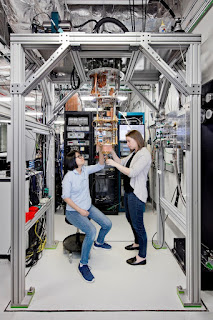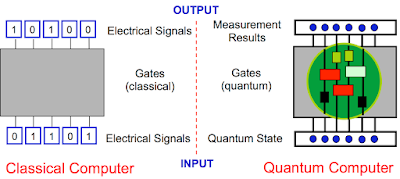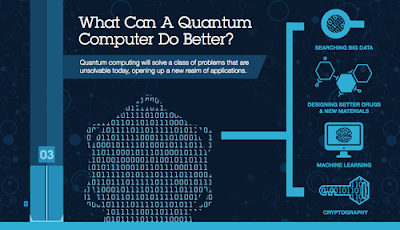Twitter Feed
VMware lays out roadmap to the clouds.
Earlier this year, Diane Greene, VMware President and Co-Founder, described cloud computing as the final evolutionary step for virtualization. Reza Malekzadeh, Senior Director of Products and Marketing reinforced that view…
Mario Dal Canto at Virtualization Conference & Expo 2008 East
According to Mario Dal Canto, “Virtual Cloud Computing represents the next wave of virtualization and offers significant market opportunities by providing a new, simpler, and much more pervasive platform for…
Microsoft cloud fits and starts.
Microsoft’s dance with cloud comuting is very puzzling. Point 1: The June 5th Wall Street Journal article discusses the friction between Steve Ballmer and Bill Gagtes over NetDocs, described by…
Salesforce.com & Google
A short promotional video on Salesforce and the Google cloud. Follow me at https://Twitter.com/Kevin_Jackson
Gamers now have their own cloud.
Valve, a Bellevue, Washington based entertainment software and technology company, recently announced that they will use the cloud computing paradigm as their next major update. Called “Steam Cloud” the service…
Is IBM serious about cloud computing?
Last week in Eye on the Enterprise, Joe McKendrick, highlighted IBM VP Steve Mills’ apparently less than enthusiastic statement regarding cloud computing. In an April 30th interview with CNET’s Dan…
VMware and Cloud Computing
VMware President and Chief Executive Officer Diane Greene,in her keynote address at the JP Morgan Technology Conference in Boston, described cloud computing as the final evolutionary step for virtualization. In…
DISA Cloud Computing Plans
During last month’s Defense Information Systems Agency (DISA) Partnership Conference, cloud computing debuted as a “top priority” for senior leadership. Speakers described a future state when users would access computing…
The Cloud Computing Portal
The Cloud Computing Portal is a community edited database that makes the cloud vendor selection process easier, by helping you find a cloud provider who supports the environment you need.…
HP in the Cloud
In “HP weds cloud…” , Hewlett-Packard has apparently outlined their approach to cloud computing. They are merging their high-performance computing unit with the Web 2.0 and cloud computing infrastructure businesses.…
- The release of a new API (Application Program Interface) for the IBM Quantum Experience that enables developers and programmers to begin building interfaces between its existing five quantum bit (qubit) cloud-based quantum computer and classical computers, without needing a deep background in quantum physics.
- The release of an upgraded simulator on the IBM Quantum Experience that can model circuits with up to 20 qubits. In the first half of 2017, IBM plans to release a full SDK (Software Development Kit) on the IBM Quantum Experience for users to build simple quantum applications and software programs.
The IBM Quantum Experience enables anyone to connect to IBM’s quantum processor via the IBM Cloud, to run algorithms and experiments, work with the individual quantum bits, and explore tutorials and simulations around what might be possible with quantum computing. Since its launch less than a year ago, about 40,000 users have run over 275,000 experiments on the IBM Quantum Experience. It has become an enablement tool for scientists in over 100 countries and, to date, 15 third-party research papers have been posted to arXiv with five published in leading journals based on experiments run on the Quantum Experience.
 The broad availability of quantum computing capability could prove to be a significant blow to current data encryption practices. In 2015 the US National Security Agency actually advised US agencies and businesses to prepare for a time when the cryptography protecting virtually all e-mail, medical and financial records, and online transactions would be rendered obsolete by quantum computing. The US National Institute for Standards and Technology (NIST) is also running a competition to spur work on post-quantum algorithms.
The broad availability of quantum computing capability could prove to be a significant blow to current data encryption practices. In 2015 the US National Security Agency actually advised US agencies and businesses to prepare for a time when the cryptography protecting virtually all e-mail, medical and financial records, and online transactions would be rendered obsolete by quantum computing. The US National Institute for Standards and Technology (NIST) is also running a competition to spur work on post-quantum algorithms. - Drug and Materials Discovery: Untangling the complexity of molecular and chemical interactions leading to the discovery of new medicines and materials;
- Supply Chain & Logistics: Finding the optimal path across global systems of systems for ultra-efficient logistics and supply chains, such as optimizing fleet operations for deliveries during the holiday season;
- Financial Services: Finding new ways to model financial data and isolating key global risk factors to make better investments;
- Artificial Intelligence: Making facets of artificial intelligence such as machine learning much more powerful when data sets can be too big such as searching images or video; or
- Cloud Security: Making cloud computing more secure by using the laws of quantum physics to enhance private data safety.
This content is being syndicated through multiple channels. The opinions expressed are solely those of the author and do not represent the views of GovCloud Network, GovCloud Network Partners or any other corporation or organization.
( Thank you. If you enjoyed this article, get free updates by email or RSS – © Copyright Kevin L. Jackson 2017)
Cloud Computing
- CPUcoin Expands CPU/GPU Power Sharing with Cudo Ventures Enterprise Network Partnership
- CPUcoin Expands CPU/GPU Power Sharing with Cudo Ventures Enterprise Network Partnership
- Route1 Announces Q2 2019 Financial Results
- CPUcoin Expands CPU/GPU Power Sharing with Cudo Ventures Enterprise Network Partnership
- ChannelAdvisor to Present at the D.A. Davidson 18th Annual Technology Conference
Cybersecurity
- Route1 Announces Q2 2019 Financial Results
- FIRST US BANCSHARES, INC. DECLARES CASH DIVIDEND
- Business Continuity Management Planning Solution Market is Expected to Grow ~ US$ 1.6 Bn by the end of 2029 - PMR
- Atos delivers Quantum-Learning-as-a-Service to Xofia to enable artificial intelligence solutions
- New Ares IoT Botnet discovered on Android OS based Set-Top Boxes




